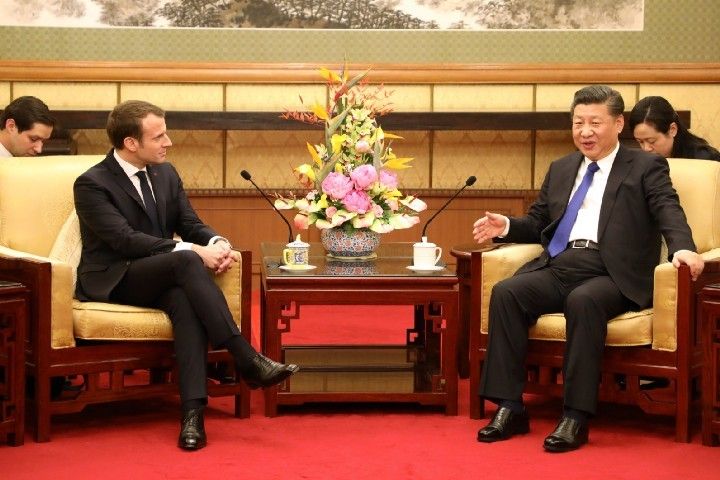Speaking of fresh claims to global power, French President Emmanuel Macron, arriving in China this week for a three-day visit, snapped off a telling tweet — “I’m here to tell you,” he wrote in French, “Europe is back.” While Macron’s ambitious domestic agenda has gotten a lot of attention, the French president is also trying to cast himself as the leader of a more energetic European foreign policy.
Three things are working in his favor: Brexit has galvanized greater security cooperation on the continent. Germany is focused inward as it struggles to form a new government after last year’s election. And Donald Trump’s “America First” foreign policy has opened up a leadership void internationally.How’s young Jupiter doing? His biggest win to date has been on climate change policy, where last month he convened more than 50 heads of state to reaffirm their commitment to the Paris climate deal. With his trip this week, Macron hopes to forge a unified European position on trade with China.
A vast majority of the French public (73%) like how he represents France abroad. But insofar as Macron is committed to revival and renewal of the European project, his foreign policy ambitions largely depend on an older question about whether a Europe of nearly thirty countries can ever have a unified global voice. To make that happen, Europe’s ambitious new soloist will have to learn how to play the role of conductor. We’re here to tell you: watch this space.
